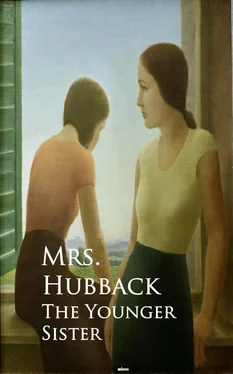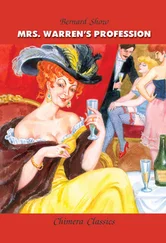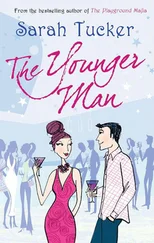Whilst they were thus sitting, quiet and composed, Charles Willis suddenly rushed into the room and took up his station close to Emma's work-table.
"Why, Charles," said Lord Osborne, "don't you see me—aren't you going to speak to me this morning," and he laid a firm grasp, as he spoke, on Charles's coat collar, and drew the boy towards himself.
"I beg your pardon, my lord, I really did not see you," replied Charles, twisting his person in the vain hope of eluding his lordship's grasp, and keeping his place.
"I say, Charles," continued the young man, "how comes it lessons are over so early this morning—a holiday—hey—or uncle lazy—I thought you never finished till noon?"
"Oh no, we have been very industrious," Charles answered; "we both worked as hard as we could to get lessons over because we wanted to come early into the drawing-room as the Miss Watsons were here."
"But you don't mean to say you like the Miss Watsons better than Latin grammar—or Greek verbs—that's impossible altogether."
Charles laughed.
"Are
you
so fond of the Latin grammar, my lord?" asked he, slyly.
"I! oh no; but then I learnt all mine long ago; and since I survived the flogging, I dare say it did me no harm. But now tell me," added he, in a whisper, quite distinct enough for every one in the room to hear, "was it you or your uncle who was in the greatest hurry: or does not he like the Miss Watsons as well as you, Charles."
"Oh, I assure you, he was quite as anxious as myself—and I think he likes Miss Emma as much as I do," whispered Charles in reply.
Whether the deep colour in Emma's cheek, at that moment, was occasioned by this answer of Charles, or by vexation at an obstinate knot in her thread, which she vainly endeavoured to disentangle, was not exactly obvious to Lord Osborne's perceptions. He thought the effect, however, so very becoming as to regard her with great admiration, and his looks were intently fixed on her, when Mr. Howard entered the room.
The eager step and open, happy look with which he was advancing, seemed to meet an unexpected shock at the sight of his young pupil. His air was embarrassed as he paid him his compliments, and after standing for a moment, as if in hesitation, he drew a chair near Miss Watson and his sister, on the opposite side of the table to the others.
A pause of some minutes ensued: it appeared that Lord Osborne found sufficient, amusement in contemplating the varying colour in Emma's cheeks, whilst Mr. Howard was occupied in playing with a pencil he took from the table, and did not raise his eyes at all.
"It is not like your lordship's usual aversion to cold," said he, at length, "to venture out on foot in such a morning. I thought nothing could have tempted you to such an exertion."
"One changes sometimes," replied Lord Osborne, "and one can do anything with a sufficient motive—I mean to turn over a new leaf, as my nursery maids used to say—and you will hardly know me again."
Another silence, during which his lordship crossed and uncrossed his legs repeatedly—then took up the poker and stirred the fire. Emma heartily wished him back at the castle: his looks fixed on her were very unpleasant; and she hoped that his departure would release Mr. Howard from the spell which appeared to overpower him, and restore his ordinary animation.
She had, however, long to wait for this desirable result; it was evident that the drawing-room at the parsonage presented more charms to the young peer, than the castle halls, and he continued to sit in silent admiration of Emma's blushes long after Mr. Howard had risen in despair, and left the room.
The sound of the door bell about noon, brought some prospect of a change; eliciting from Mrs. Willis an exclamation of wonder, and from Lord Osborne an interjection—
"I'll bet anything that's my sister."
He was right. Wrapt in a furred mantle which might almost have defied the cold of a Siberian winter, Miss Osborne made her entry, on purpose to call on Miss Emma Watson, as she declared immediately. Emma observed her with some curiosity. She was a small, young woman, with lively manners, a quick, dark eye, and good humoured expression. Quite pretty enough, considering her birth, to be called beautiful, though had she been without the advantages of rank, fashion and dress—had she, in fact, been a Miss Watson, and not a Miss Osborne, she would not, probably, have been noticed a second time. She was extremely courteous and agreeable in her manners, chatting with volubility and animation, as if it was a relief to her to escape from the state apartments of her mother's house, to the unrestrained warmth and good-nature of the parsonage.
"Where's your brother to-day, Mrs. Willis," said she presently, "has he run away from me; does he fancy we are charged with lectures for his desertion of our drawing-room last night. He need not be afraid.
I
think he was very excusable."
"He was here just now. I do not think his conscience seems very uneasy—he is probably engaged in some business at present—I will let him know you are here."
"Oh no, pray don't disturb him; I have too much regard for his credit, and the good of his parishioners. What should I say if my intrusion broke in on an argument, or put to flight a beautiful figure of speech. How could I answer for such mischief. Let him write his sermon in peace."
Mrs. Willis assented. Probably Miss Osborne did not expect she would, for she presently added:
"I don't know, however, but that on the whole you had better summon him, because then he can give us his opinion on the proposal that I am charged to make, being nothing less than that you should
all
come and dine at the Castle this evening."
It would not be easy for words to convey an accurate idea of the look and feelings of Elizabeth Watson on hearing this proposal. To say she was astonished, is to tell but a small part of her sensations. The idea that she should have lived to see the day which brought about such an invitation was so perfectly overwhelming, that she seemed to herself until that moment never to have been surprised before. But to accept it was impossible: she felt an instantaneous conviction that it must be refused; for besides not knowing how to conduct herself under such circumstances, she had no dress to go in. Their visit to the parsonage having been entirely unpremeditated, it followed, of course, that there had been no preparations made; their best dresses, inferior as they were to what the visitors at Osborne Castle might be expected to produce, were reposing in quietness in Elizabeth's wardrobe.
Miss Osborne's proposal was followed by a short, hesitating silence amongst those to whom it was addressed.
"Perhaps," cried she perceiving this, "you will like a moment's consideration. I do not wish to hurry for an answer. Pray deliberate on the case, Mrs. Willis, but if you can, persuade your friends to conclude their deliberations in our favour."
"I am afraid," said Elizabeth, urged by the desperate nature of her feelings to some immediate exertion, "I am afraid we cannot have the pleasure—do ourselves the honor I believe I ought to say—but indeed we were not prepared—we have no dress at all suitable for the occasion"—she stopped, afraid that she might have done wrong in exposing the real state of the case.
Miss Osborne looked surprised, as if the idea of not possessing a sufficient stock of gowns had never before entered her head.
"I am sorry there should be any difficulty," she cried, "gowns that are good enough for Mrs. Willis and Mr. Howard, must surely be good enough for us. We shall not make the smallest objection to your coming as you are. You will be conferring on us a most important favour. You cannot imagine how miserably dull we find ourselves in this weather. Mama dozes over a fire-screen, and Miss Carr and I sit and look at each other, and long for a change of scene. Snow is always detestable, but at Osborne Castle it surpasses everything for deadening the faculties and damping the spirits. Come now, do think favourably of my request, how shall I dare to face Lady Osborne with a second refusal?"
Читать дальше












